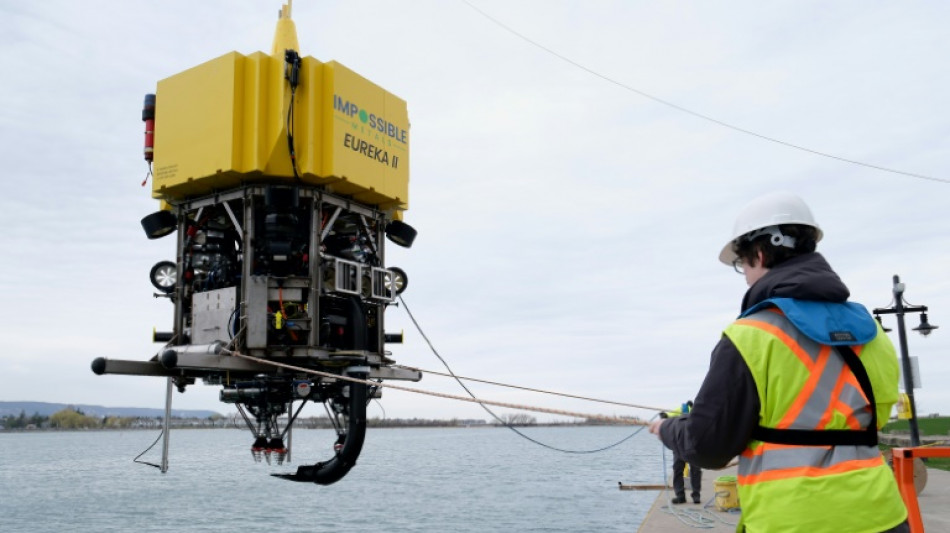
-
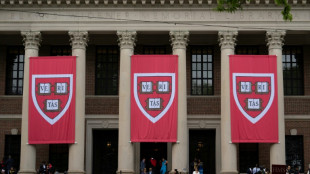 Trump administration ramps up attack on Harvard, Columbia
Trump administration ramps up attack on Harvard, Columbia
-
North Korea's Kim vows 'unconditional support' for Russia's war in Ukraine

-
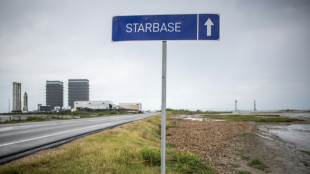 Starbase city grows near Musk's launch site and wilderness refuges
Starbase city grows near Musk's launch site and wilderness refuges
-
More people leave homes in Canada as huge wildfires spread

-
 US-backed group extends closure of Gaza aid sites
US-backed group extends closure of Gaza aid sites
-
Trump slaps new travel ban on 12 countries
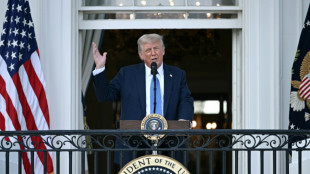
-
 'I am a political prisoner' says detained Salvadoran activist
'I am a political prisoner' says detained Salvadoran activist
-
Trump orders inquiry into 'conspiracy' to hide Biden's health decline
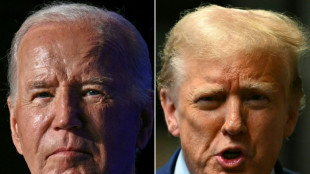
-
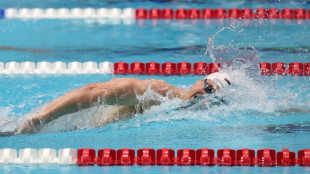 Hobson blazes to 200m free victory at US Swim Championships
Hobson blazes to 200m free victory at US Swim Championships
-
Trump signs travel ban on 12 countries after Colorado attack
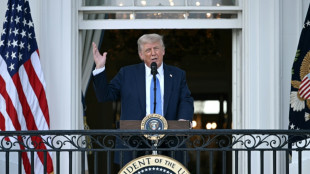
-
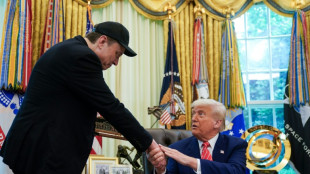 A lingering Musk: Will ex-aide Elon get up Trump's nose?
A lingering Musk: Will ex-aide Elon get up Trump's nose?
-
Who said what: French Open day 11

-
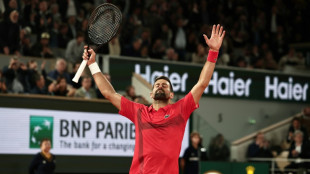 Djokovic downs Zverev to set up French Open semi clash with Sinner
Djokovic downs Zverev to set up French Open semi clash with Sinner
-
Pledge to protect oceans falling billions short: report
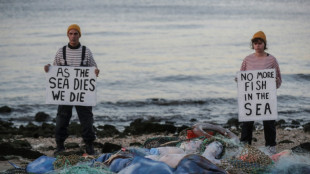
-
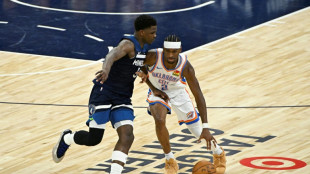 Silver says 2026 NBA All-Star game to have USA v World format
Silver says 2026 NBA All-Star game to have USA v World format
-
Portugal praise veteran Ronaldo's 'hunger' after Nations League win
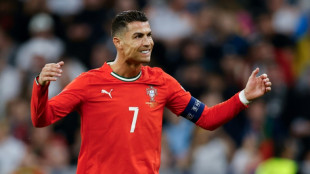
-
 Pacers' Haliburton relishes NBA title shot against dominant Thunder
Pacers' Haliburton relishes NBA title shot against dominant Thunder
-
Djokovic beats Zverev after Boisson lights up French Open
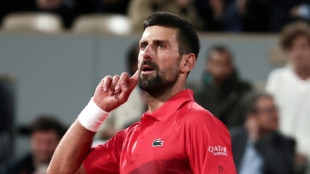
-
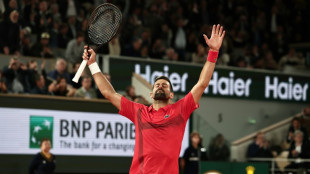 Djokovic downs Zverev to reach French Open semis
Djokovic downs Zverev to reach French Open semis
-
'No means no' prosecutor tells jurors as Harvey Weinstein trial wraps

-
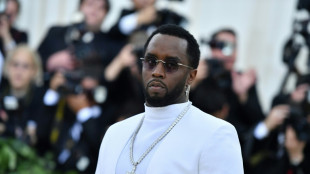 Witness testifies Sean Combs dangled her from balcony
Witness testifies Sean Combs dangled her from balcony
-
Trump says Putin plans to retaliate for Ukraine attack on bombers

-
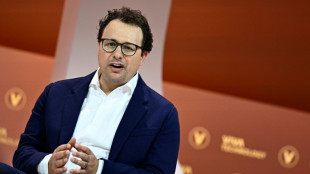 Reddit sues AI giant Anthropic over content use
Reddit sues AI giant Anthropic over content use
-
Thunder's Gilgeous-Alexander hungry to cap MVP season with NBA crown

-
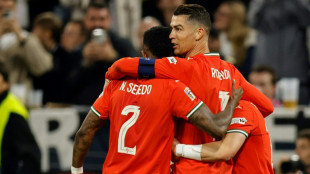 Ronaldo breaks Germany jinx as Portugal reach Nations League final
Ronaldo breaks Germany jinx as Portugal reach Nations League final
-
Anger as US blocks Gaza ceasefire resolution at UN Security Council

-
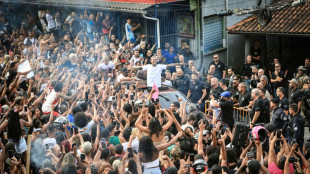 Does Brazilian funk glorify crime? Singer's arrest triggers debate
Does Brazilian funk glorify crime? Singer's arrest triggers debate
-
Scientists, doctors, disabled join Argentine pensioners' march

-
 Europe suffers its largest diphtheria outbreak in 70 years
Europe suffers its largest diphtheria outbreak in 70 years
-
Swiss probe intelligence leaks to Russia

-
 Boisson joins select group of surprise Grand Slam semi-finalists
Boisson joins select group of surprise Grand Slam semi-finalists
-
US blocks Gaza ceasefire resolution at UN Security Council

-
 Chelsea win race to sign Ipswich striker Delap
Chelsea win race to sign Ipswich striker Delap
-
Canada steelworkers urge Ottawa to counter Trump
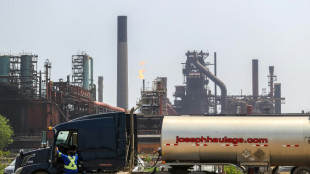
-
 Detained Salvadoran activist says she won't be silenced
Detained Salvadoran activist says she won't be silenced
-
Syria says Israeli strikes 'aimed at undermining' progress, stability

-
 Cuban students call boycott over mobile tariff hikes
Cuban students call boycott over mobile tariff hikes
-
Sinner says childhood acquaintance Boisson 'deserves' fairytale French Open run
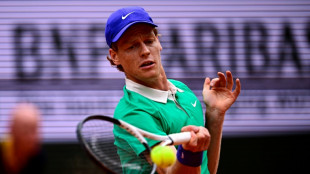
-
 Brazil's top court tackles social media regulation
Brazil's top court tackles social media regulation
-
Deschamps banking on France depth against 'best in the world' Spain
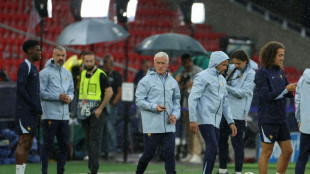
-
 13 on trial in France over 'racist' stunt against Olympics singer
13 on trial in France over 'racist' stunt against Olympics singer
-
Swiatek faces Sabalenka in blockbuster French Open semi-final

-
 Trump says Putin plans to retaliate after Ukraine drone strikes
Trump says Putin plans to retaliate after Ukraine drone strikes
-
McIlroy explains media silence after driver ban
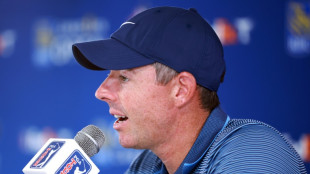
-
 Trump says Iran 'slowwalking' as Khamenei opposes nuclear proposal
Trump says Iran 'slowwalking' as Khamenei opposes nuclear proposal
-
Boisson 'going for the dream' at French Open after injury nightmare
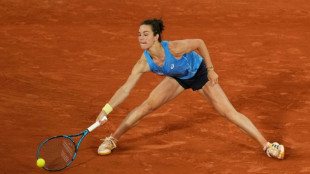
-
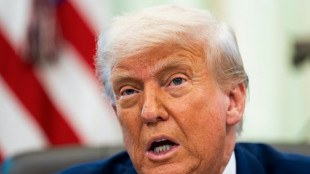 Trump talks with Putin on Ukraine, Iran
Trump talks with Putin on Ukraine, Iran
-
Bulgaria on course to become 21st EU member to adopt euro

-
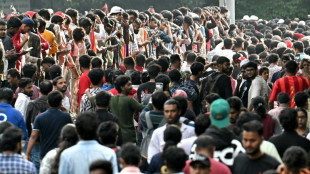 Deadly stampede at India cricket celebrations leaves 11 dead
Deadly stampede at India cricket celebrations leaves 11 dead
-
Paris seeks personhood status for River Seine


In Canada lake, robot learns to mine without disrupting marine life
Three robotic arms extended under the water in a Canadian lake, delicately selecting pebbles from the bed, before storing them back inside the machine.
The exercise was part of a series of tests the robot was undergoing before planned deployment in the ocean, where its operators hope the machine can transform the search for the world's most sought-after metals.
The robot was made by Impossible Metals, a company founded in California in 2020, which says it is trying to develop technology that allows the seabed to be harvested with limited ecological disruption.
Conventional underwater harvesting involves scooping up huge amounts of material in search of potato-sized things called poly-metallic nodules.
These nodules contain nickel, copper, cobalt, or other metals needed for electric vehicle batteries, among other key products.
Impossible Metals' co-founder Jason Gillham told AFP his company's robot looks for the nodules "in a selective way."
The prototype, being tested in the province of Ontario, remains stationary in the water, hovering over the lake bottom.
In a lab, company staff monitor the yellow robot on screens, using what looks like a video game console to direct its movements.
Using lights, cameras and artificial intelligence, the robot tries to identify the sought-after nodules while leaving aquatic life -- such as octopuses' eggs, coral, or sponges -- undisturbed.
- 'A bit like bulldozers' -
In a first for the nascent sector, Impossible Metals has requested a permit from US President Donald Trump to use its robot in American waters around Samoa, in the Pacific.
The company is hoping that its promise of limited ecological disruption will give it added appeal.
Competitors, like The Metals Company, use giant machines that roll along the seabed and suck up the nodules, a highly controversial technique.
Douglas McCauley, a marine biologist at the University of California, Santa Barbara, told AFP this method scoops up ocean floor using collectors or excavators, "a bit like bulldozers," he explained.
Everything is then brought up to ships, where the nodules are separated from waste, which is tossed back into the ocean.
This creates large plumes of sediment and toxins with a multitude of potential impacts, he said.
A less invasive approach, like that advocated by Impossible Metals, would reduce the risk of environmental damage, McCauley explained.
But he noted lighter-touch harvesting is not without risk.
The nodules themselves also harbor living organisms, and removing them even with a selective technique, involves destroying the habitat, he said.
Impossible Metals admits its technology cannot detect microscopic life, but the company claims to have a policy of leaving 60 percent of the nodules untouched.
McCauley is unconvinced, explaining "ecosystems in the deep ocean are especially fragile and sensitive."
"Life down there moves very slowly, so they reproduce very slowly, they grow very slowly."
Duncan Currie of the Deep Sea Conservation Coalition said it was impossible to assess the impact of any deep sea harvesting.
"We don't know enough yet either in terms of the biodiversity and the ecosystem down there," he told AFP.
According to the international scientific initiative Ocean Census, only 250,000 species are known, out of the two million that are estimated to populate the oceans.
- High demand -
Mining is "always going to have some impact," said Impossible Metals chief executive and co-founder Oliver Gunasekara, who has spent most of his career in the semiconductor field.
But, he added, "we need a lot more critical minerals, as we want to electrify everything."
Illustrating the global rush toward underwater mining, Impossible Metals has raised US$15 million from investors to build and test a first series of its Eureka 3 robot in 2026.
The commercial version will be the size of a shipping container and will expand from three to 16 arms, and its battery will grow from 14 to nearly 200 kilowatt-hours.
The robot will be fully autonomous and self-propel, without cables or tethers to the surface, and be equipped with sensors.
While awaiting the US green light, the company hopes to finalize its technology within two to three years, conduct ocean tests, build a fleet, and operate through partnerships elsewhere in the world.
C.Garcia--AMWN
